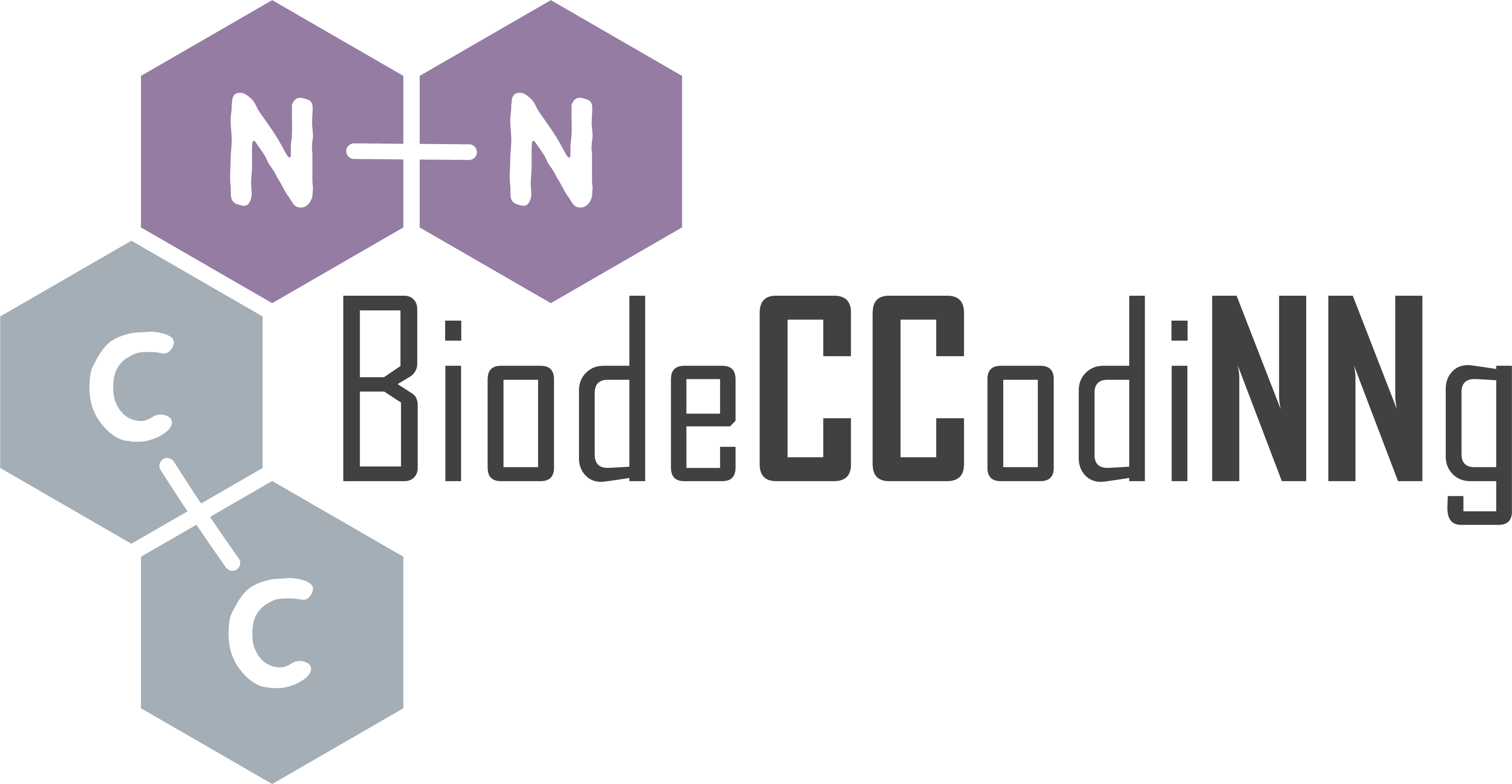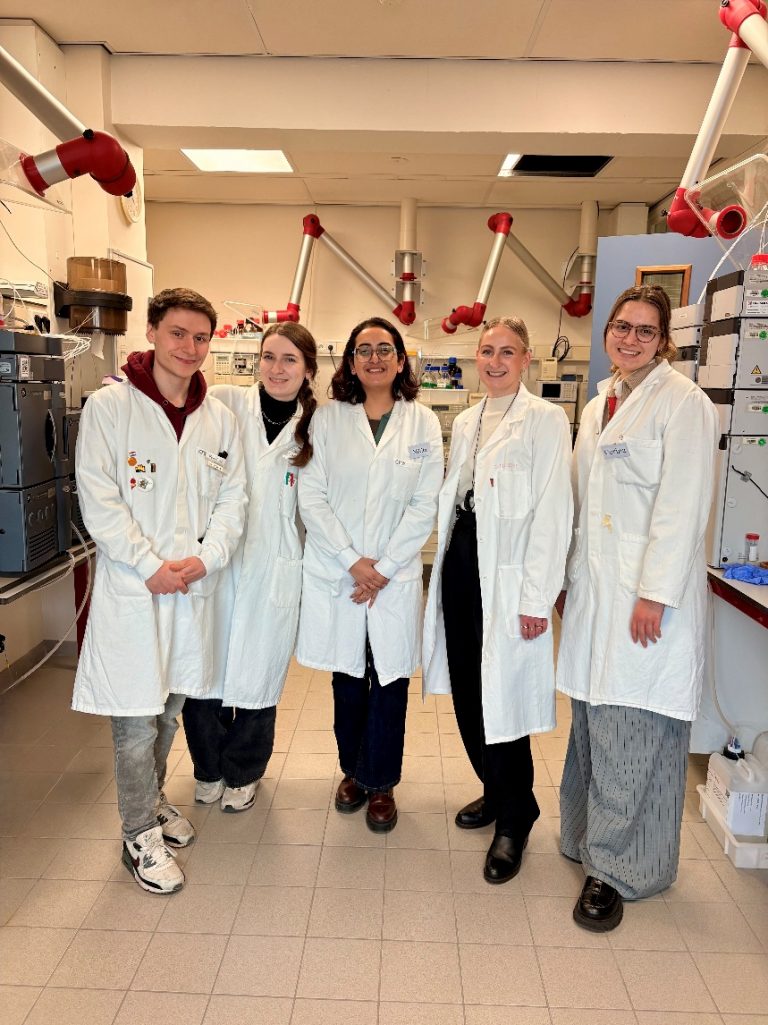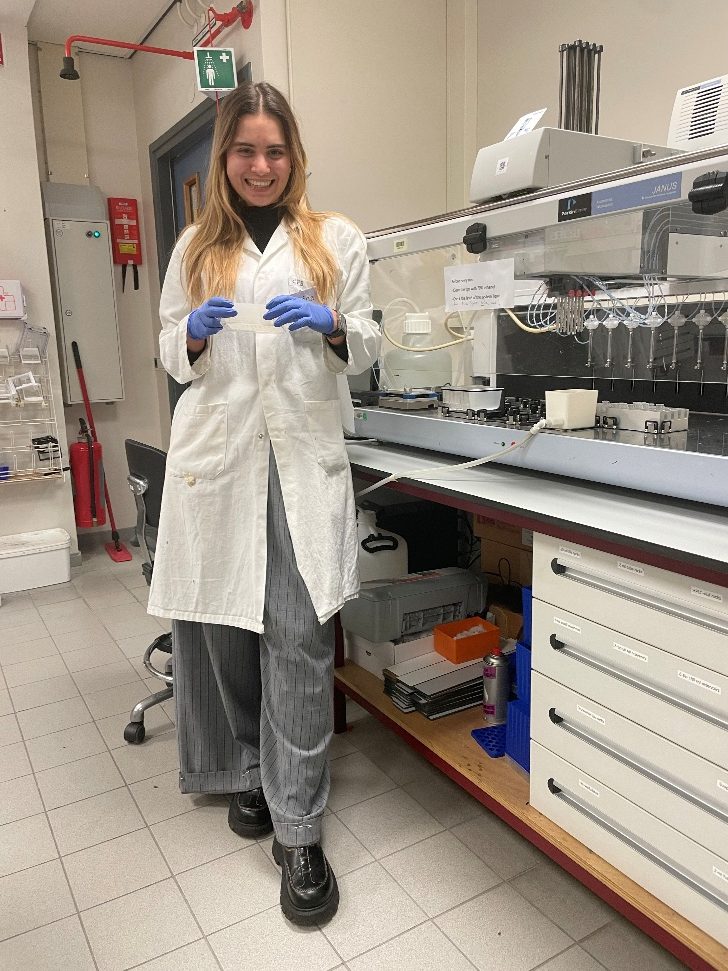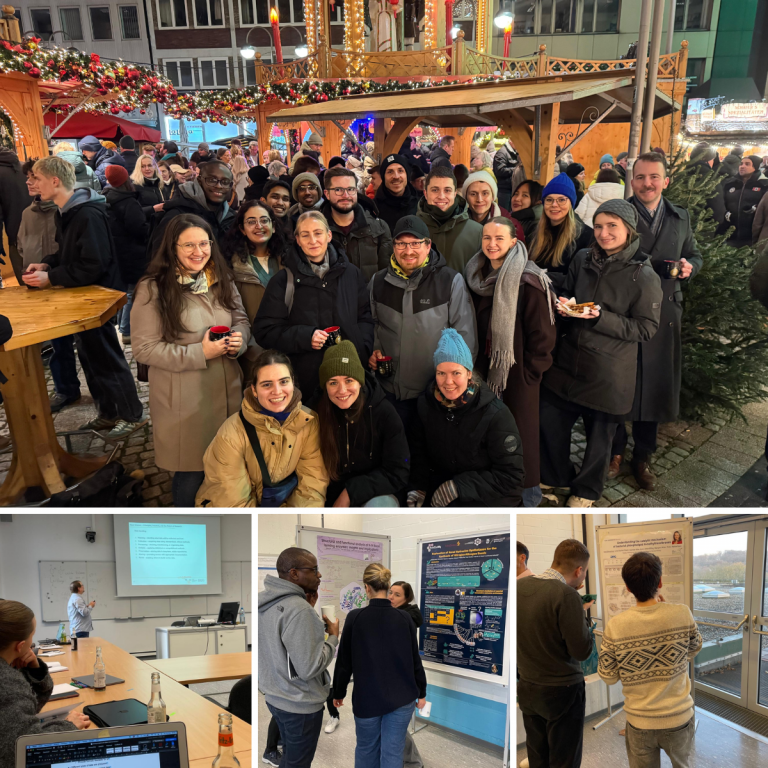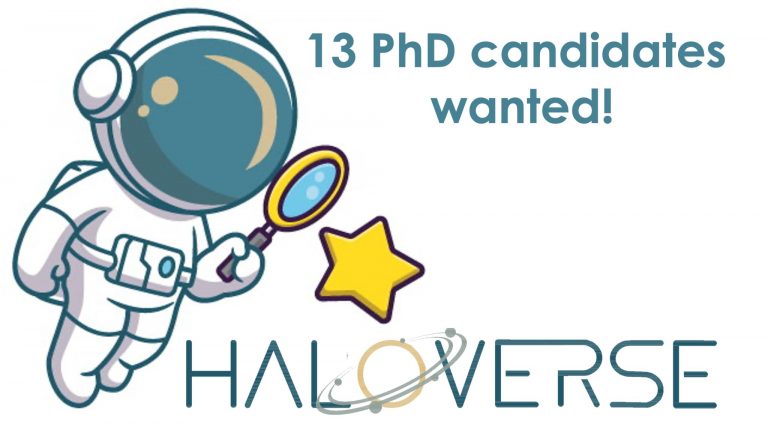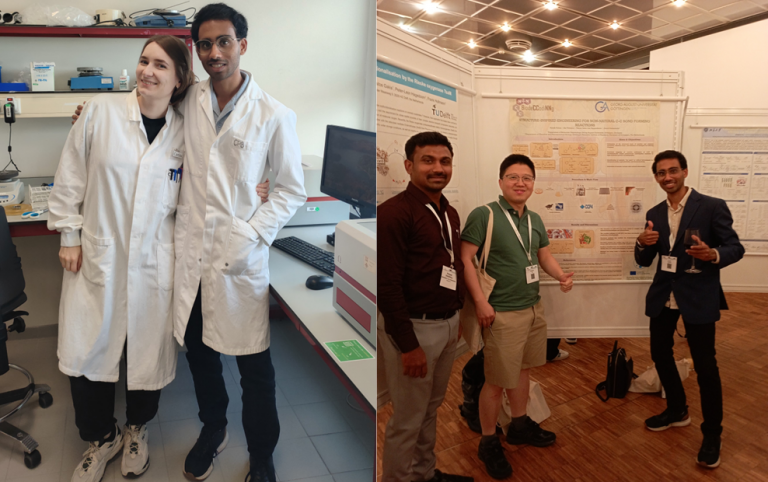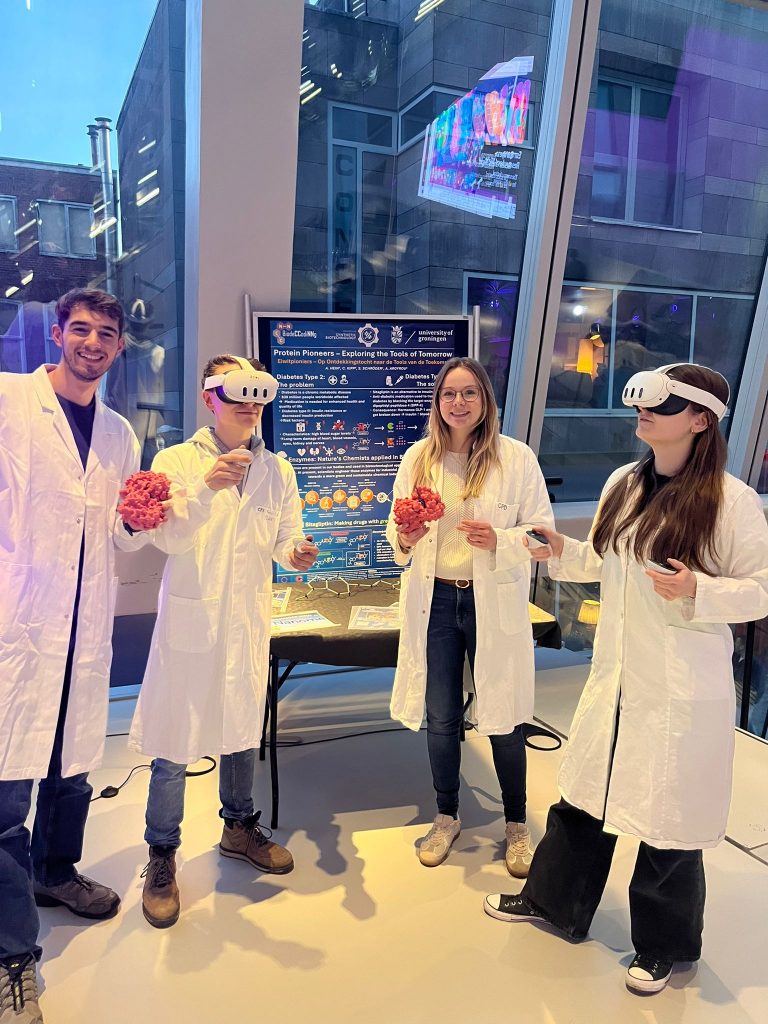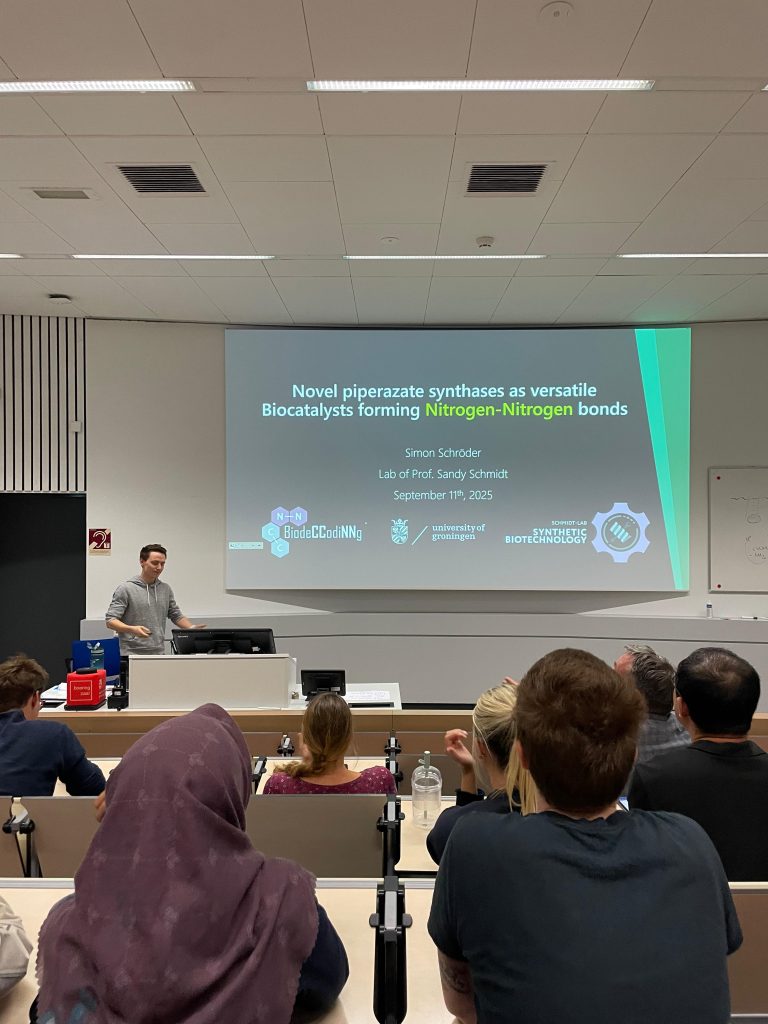Prof. Dr. Gerrit J. Poelarends
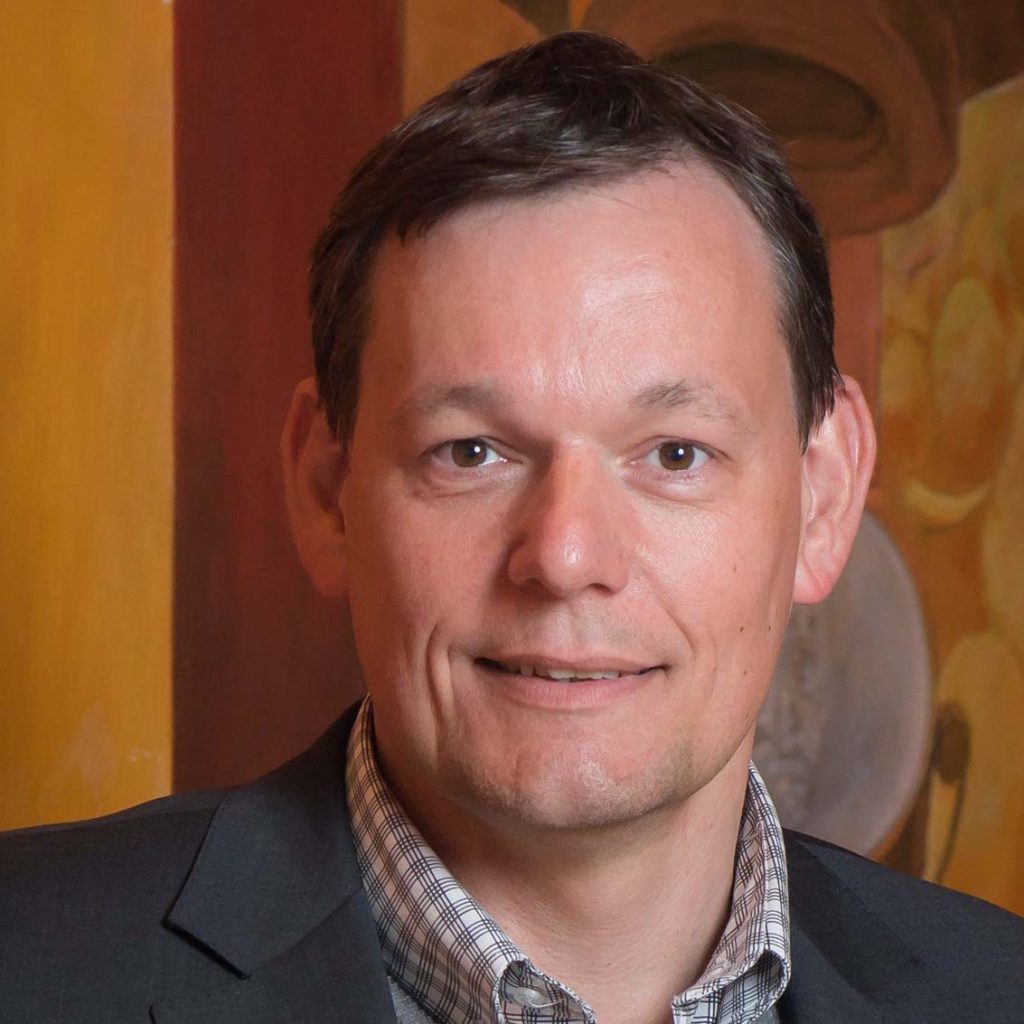
Prof. Dr. Gerrit J. Poelarends
University of Groningen (RUG)
Groningen Research Institute of Pharmacy
Department of Chemical and Pharmaceutical Biology
Antonius Deusinglaan 1
9713 AV Groningen
The Netherlands
Prof. G.J. Poelarends is Vice-Coordinator, WP1 leader, first supervisor of DC2, and member of the Research Committee.
Prof. G.J. Poelarends has been leading an independent research group at the department of Chemical and Pharmaceutical Biology, University of Groningen, The Netherlands since 2006, with promotion to Full Professor in 2017. He is an internationally recognised leader in the enzyme engineering and biocatalysis fields and has been at the forefront of the development of enzymes for new-to-nature reactions during the past decade. This has spanned from the discovery and exploitation of promiscuous enzyme activities to the creation of new biocatalysts for abiological C-C, C-N and C-O bond-forming reactions. This includes the use of advanced laboratory evolution strategies to improve the properties (e.g. activity, stability, chemoselectivity & stereoselectivity) of enzymes. His distinctive contributions to the field of enzyme engineering have been acknowledged with prestigious national (VENI, VIDI, VICI) and international (ERC-StG & ERC-PoC) grants and have resulted in many invited lectures at international conferences.
Key expertise
The group of Prof. Dr. G.J. Poelarends has a strong (inter)national position in the area of enzyme discovery, characterization, promiscuity, engineering, and biocatalysis. The group has an innovative research program on C-N, C-O and C-C bond-forming enzymes. The group solved X-ray structures, catalytic mechanisms, and the basis of enantioselectivity of these enzymes, performed protein engineering studies aimed at improving their catalytic properties, and developed new biocatalytic conversions with these enzymes. Several projects are running in collaboration with industrial partners. The Poelarends group is well equipped for molecular biology, enzymology, and biocatalysis work. The PI and his research group have direct access to fermenters and protein purification facilities, a robotic liquid handling station, 96/384-wells UV/VIS and fluorescence plate readers, instruments for UV/VIS and CD spectroscopy, gas chromatography and high performance liquid chromatography with on-line mass-spectrometry, crystallization and X-ray analysis, including a high-throughput nano-volume crystallization robot, and advanced equipment for chemical synthesis, purification and analysis, including various NMR machines.
Hosting Institution
The University of Groningen (RUG), founded in 1614, enjoys an international reputation as one of the oldest and leading research universities in Europe. RUG has extended education and
research activities in all major academic disciplines (~30,000 bachelor/master students and ~1,500 PhD students), including a strong research program in the life sciences/biotechnology area. RUG is currently in or around the top 100 on several influential ranking lists.
The research group Chemical and Pharmaceutical Biology (CPB) consists of an enthousiastic group of researchers from different parts of the world. The scientific staff currently includes two full professors, one associate professor, and two assistant professors. In addition, 2 postdocs, 4 technicians and >25 PhD students are members of the research group. The head of the CPB research group is Prof. Gerrit J. Poelarends. The research of CPB has as its central aim the exploration of the living cell as a source of pharmaceutically relevant targets and products. Next to phytochemical analysis, molecular-biological techniques are applied to gain insight into biosynthetic routes and to control the production of bioactive compounds via metabolic pathway engineering. The biosynthesis of complex natural products is a universal theme within CPB, and its associated bottlenecks can be addressed by developing cell factories. The efficacy of biopharmaceuticals is being improved by the application of new techniques of combinatorial biology, protein engineering and computational design. New biocatalysts for stereoselective bond-forming reactions are being engineered, enabling the greener and more sustainable and step-economic synthesis of Active Pharmaceutical Ingredients (APIs). Gene therapy for in situ expression of therapeutics is being pursued using the adenovirus as a vector, with a focus on the targeted delivery and expression of the transgene product. We also have a strong interest to develop and optimize CRISP/Cas-based strategies to fight human diseases as well as to perform genome editing in microbes. Through modulation of the activity of certain intracellular as well as membrane proteins, such as histone modifying enzymes, macrophage migration inhibitory factor and glutamate transporters, the research group is contributing to the development of novel cures for several diseases including inflammatory diseases and cancer.
Contact
g.j.poelarends@rug.nl
https://www.rug.nl/staff/g.j.poelarends/
https://www.rug.nl/research/grip/cpb/
https://www.rug.nl/research/grip/organisation/staff
Relevant Publications
1. Xu G, Poelarends GJ. Unlocking New Reactivities in Enzymes by Iminium Catalysis. Angew. Chem. Int. Ed. 2022; 61(30):e202203613; doi: 10.1002/anie.202203613. 2. Xu G, Kunzendorf A, Crotti M, Rozeboom HJ, Thunnissen AWH, Poelarends GJ. Gene Fusion and Directed Evolution to Break Structural Symmetry and Boost Catalysis by an Oligomeric C-C Bond-Forming Enzyme. Angew. Chem. Int. Ed. 2022;61(8):e202113970; doi: 10.1002/anie.202113970. 3. Kunzendorf A, Xu G, Saifuddin M, Saravanan T, Poelarends GJ. Biocatalytic Asymmetric Cyclopropanations via Enzyme-Bound Iminium Ion Intermediates. Angew. Chem. Int. Ed. 2021; 60(45):24059-24063; doi: 10.1002/anie.202110719. |
